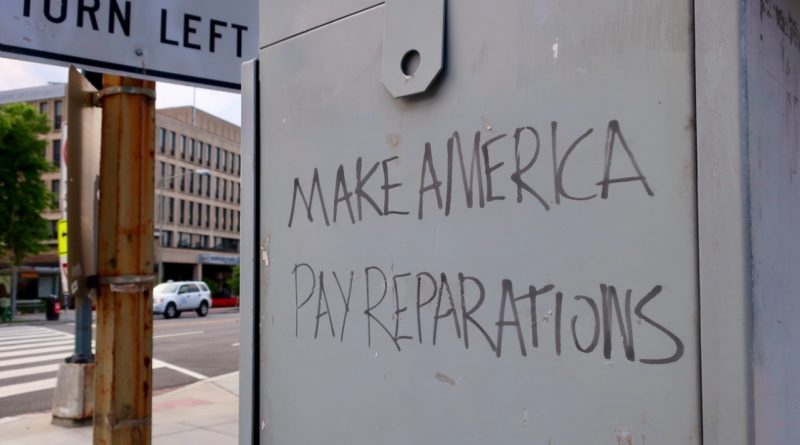How One Group Fights For Locally Grown Reparations
by Nahlah Abdur-Rahman
July 7, 2024
The African American Redress Network consists of lawyers, historians, and experts dedicated to racial justice.
As conversations surrounding reparations continue to grow across the United States, the African American Redress Network seeks to help establish these frameworks on a local level.
The organization promotes the implementation and necessity of reparations to support Black communities. Established in 2019, the network consists of lawyers, historians, and experts dedicated to racial justice. Their mission toward reparations, however, began in the aftermath of George Floyd’s death from police brutality.
Their work in cities like St. Louis, where they assisted research for a reparations group, spread awareness on the topic. Working alongside community leaders, the cohort releases harm reports on the most prevalent inequalities in each area. These inequalities could range from housing to education.
“It’s impossible to actually get equity without reparations being part of the solutions,” explained the network’s founder, Justin Hansford, to NPR. “That’s [a harm report] helping these communities make the case where they are located.”
Their redress projects also range as needed. They have completed segregation impact studies in Evanston, Illinois, while creating harm reports for already-established reparations task forces. Most reports themselves dissect the legal possibilities of addressing these issues.
Additionally, their ongoing mapping project tracks reparations bills across the United States, furthering their cause for nationwide change. The network hopes to persuade lawmakers toward championing reparations efforts over time.
“Congressmen have to recognize that this is happening on a local level, and so why can’t it happen on the national level,” questioned Hansford. “From the bottom up, eventually, we’ll get to the national reparations conversation. In the meantime, communities are able to actually participate in their own historical reckoning.”
As the project details, reparations task forces have launched across the country. They also led to legislative efforts to make the discussion a reality for Black residents. However, as the work continues, so is the mounting pushback. Hansford exposed how some oppose the use of word “reparations,” stating it evokes controversy that could limit a bill’s passing.
Hansford added, “To me, that is the worst thing that you can do, because what you’re doing is defeating the whole purpose of the project, which is to acknowledge specific racial harm, and to provide a remedy for it.”
Despite the obstacles, the validation of Black individuals’ plight has carried on. In St. Louis specifically, the network assisted in the development of an 100-page harm report. With the testimonies of Black residents included, the city’s mayor, Tishaura Jones, and the Board of Aldermen will review the document in September.
“Wealth was stolen from us and we’re not asking for a handout. We’re just asking for that which was taken from us,” explained Areva Martin, an attorney for the descendants of Henrietta Mills, a woman enslaved by St. Louis University. “This is not a money grab, think of it as just a pursuit for equity, and parity and justice.”

